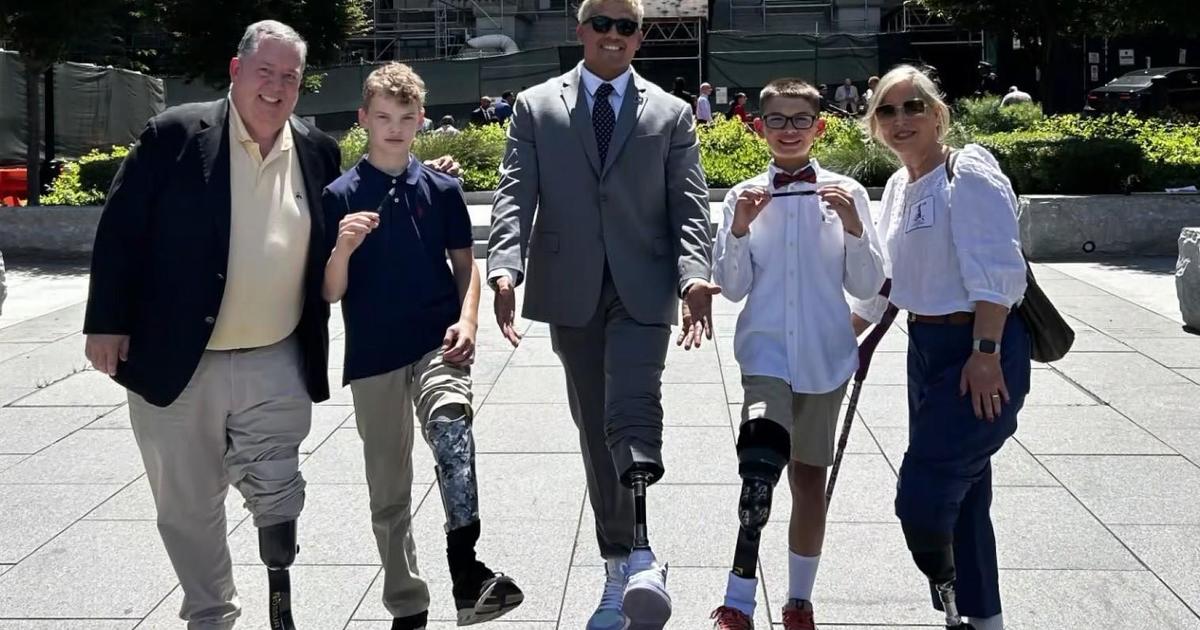
New Maryland law requires coverage for special prosthetics used for physical activities

New Maryland law helps amputees cover special prosthetics
02:08
BALTIMORE — A new Maryland Law, the “So Everybody Can Move Act,” requires the Maryland Medical Assistance Program and state commercial plans to cover prosthetics designed for physical activities, including running, biking or swimming.
The new law was spearheaded by John-Edward Heath, a Marine veteran and Paralympian who lost his leg after being hit by a drunk driver.
“I competed in Olympic weightlifting, I did powerlifting, bodybuilding, so I’ve been very active pretty much my entire life,” Heath said.
Access to special prosthetics
Heath needed special prosthetics to remain active after his amputation, and he was able to get them through the Veterans Administration.
Other amputees would have had to pay tens of thousands of dollars out of pocket for those secondary prosthetics because they weren’t covered by insurance.
“If I request a certain foot or a blade, I get that instantly because I’m a veteran,” Heath said. “That’s how the ‘So Everybody Can Move’ initiative started, because I realized not everybody had the same access that I do.”
Heath spent the past year working with Maryland lawmakers to pass legislation mandating that insurance companies pay for more than just a single prosthetic for those who have lost limbs.
Thanks to the new legislation, which went into effect on January 1, 2025, amputees have better access to those special prosthetics.
“It’s going to truly benefit and change a lot of people’s lives,” Heath said.
Battle for orthoses coverage
With the help of certified prosthetics and orthotics practitioner Cheryl Sachs, Heath is now pushing state lawmakers to fight for insurance coverage for people who have orthoses, external devices – like braces – for people who have mobility impairments.
“Usually insurance says you get one device for everyday use and that’s it,” Sachs said. “There’s an equity issue here where the law is essentially stating, because you have a mobility impairment, it’s not your right to be as physically active as your peers who don’t have those impairments.”
Dr. Andrew Bucknor, who is Heath’s physical therapist, plans to get involved too. He sees first-hand the difference movement can make.
“Whether that’s a sport, whether that’s playing with your grandkids, playing with your children and just navigating life,” Dr. Bucknor said.
Source: cbsnews.com